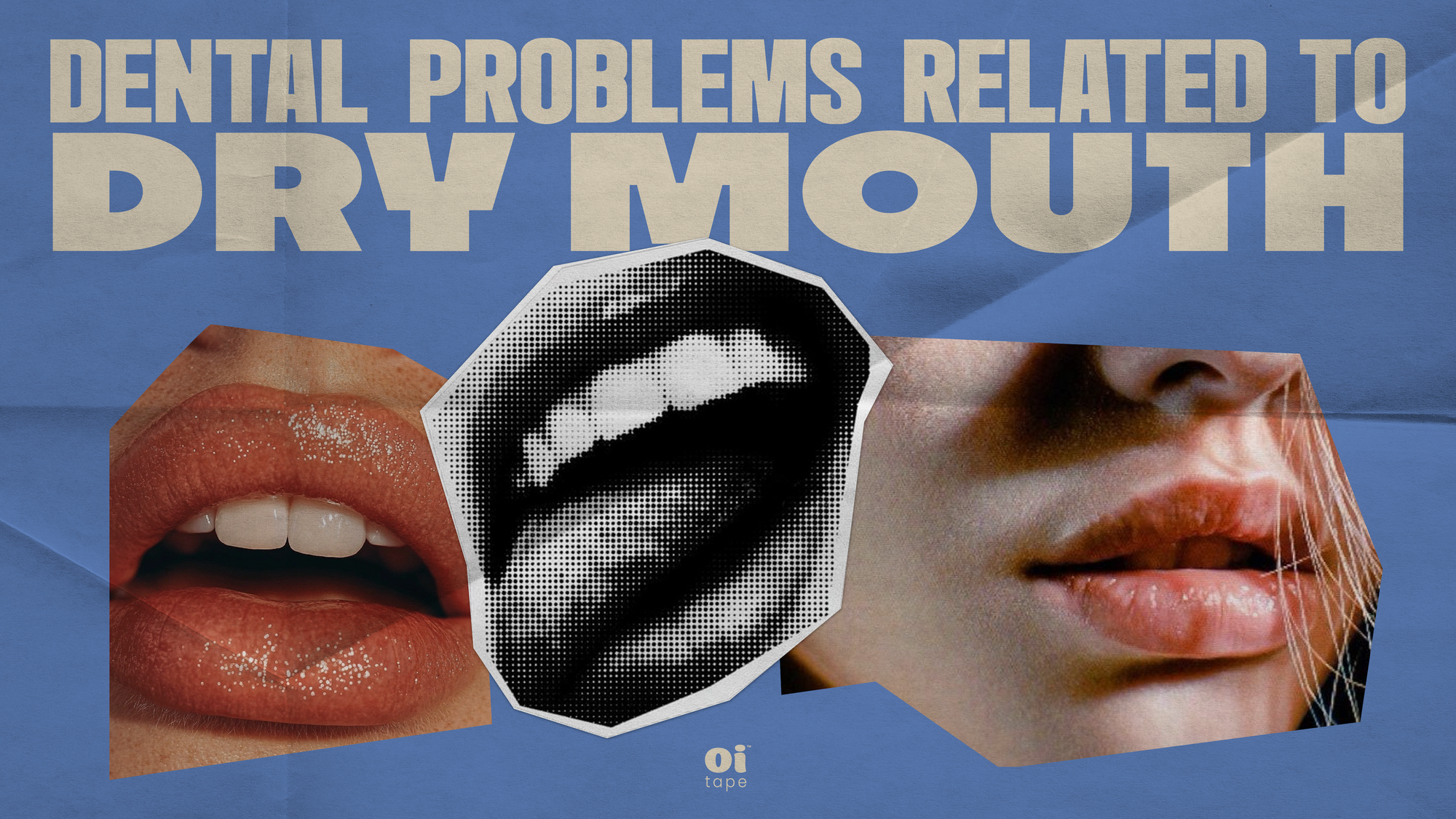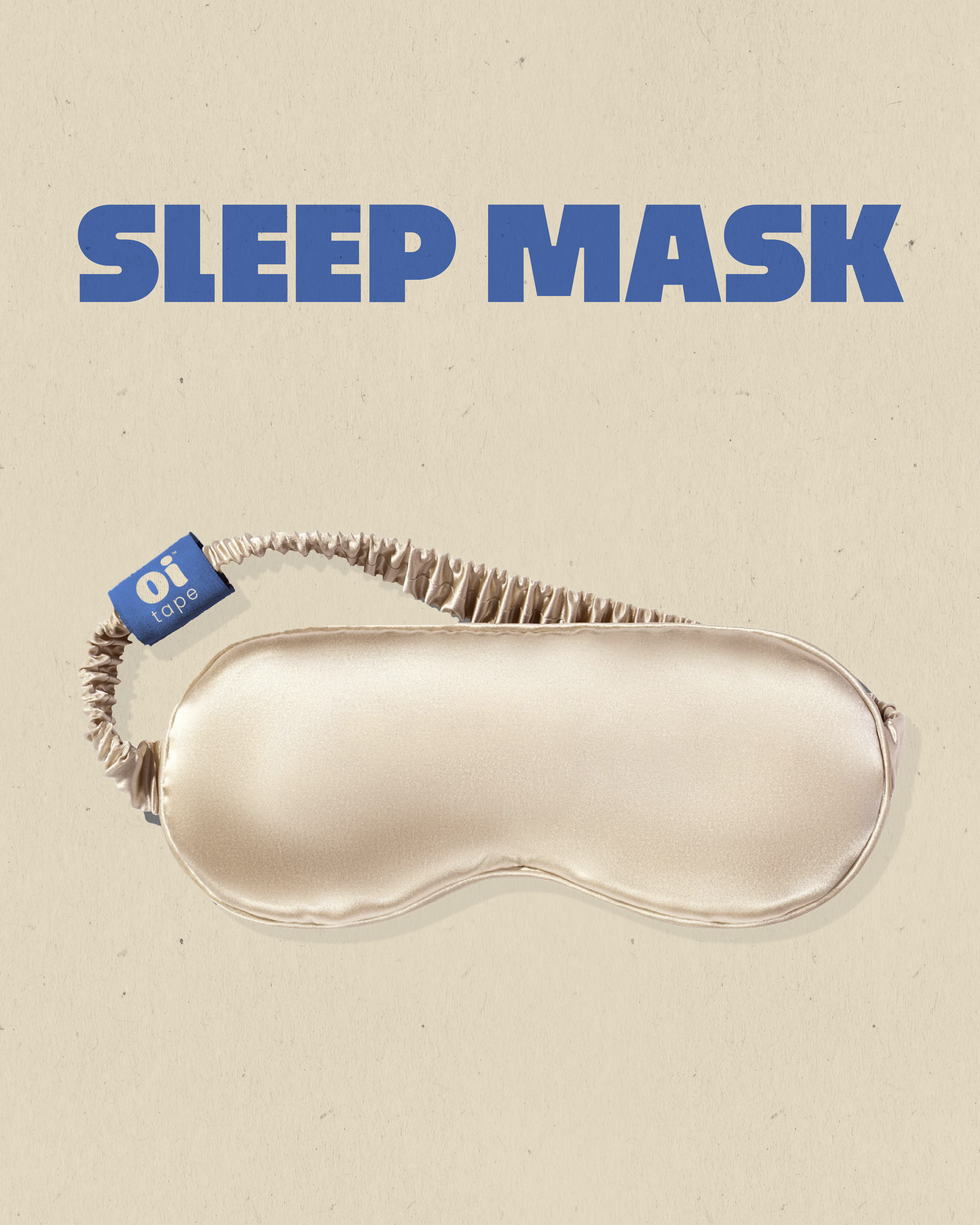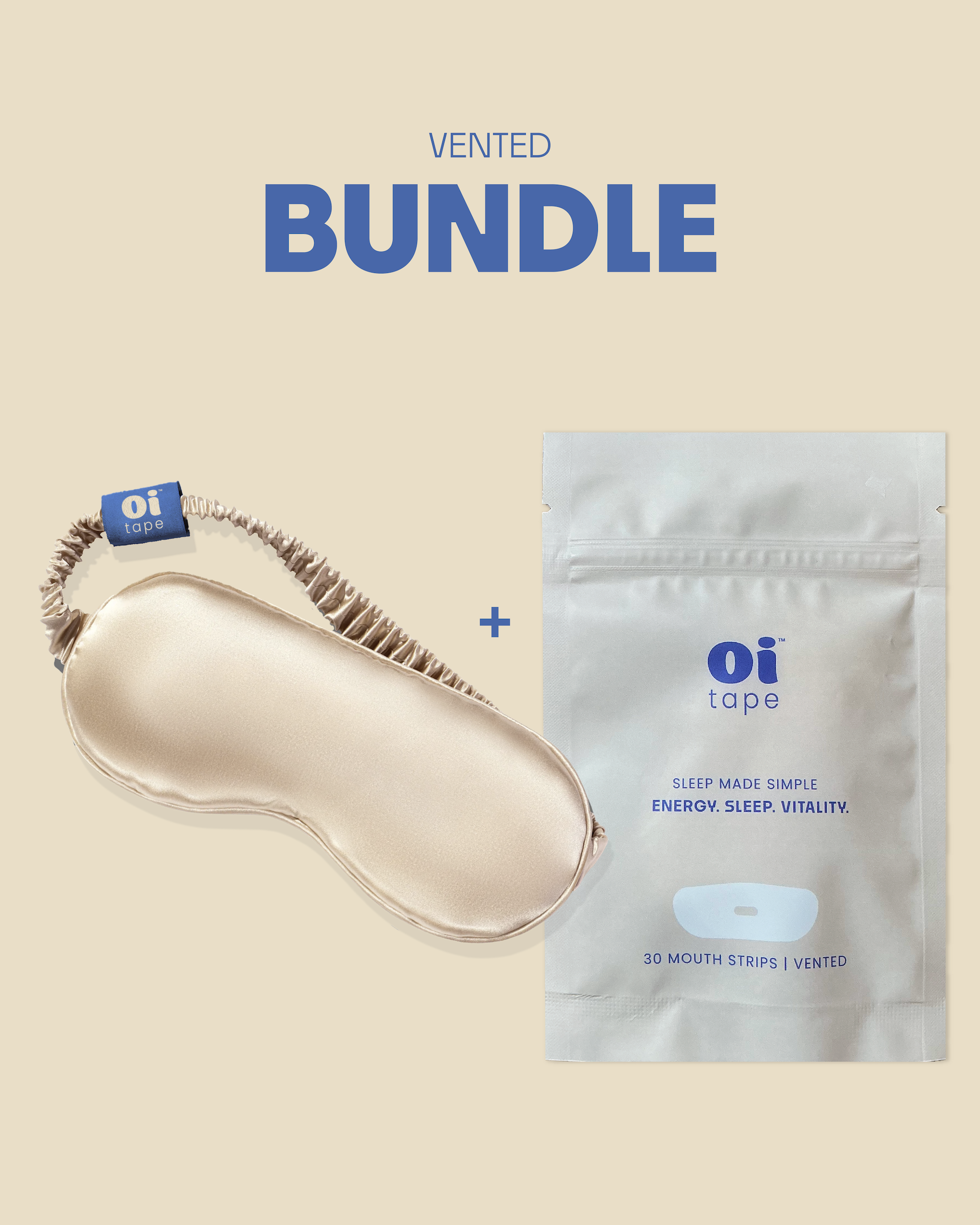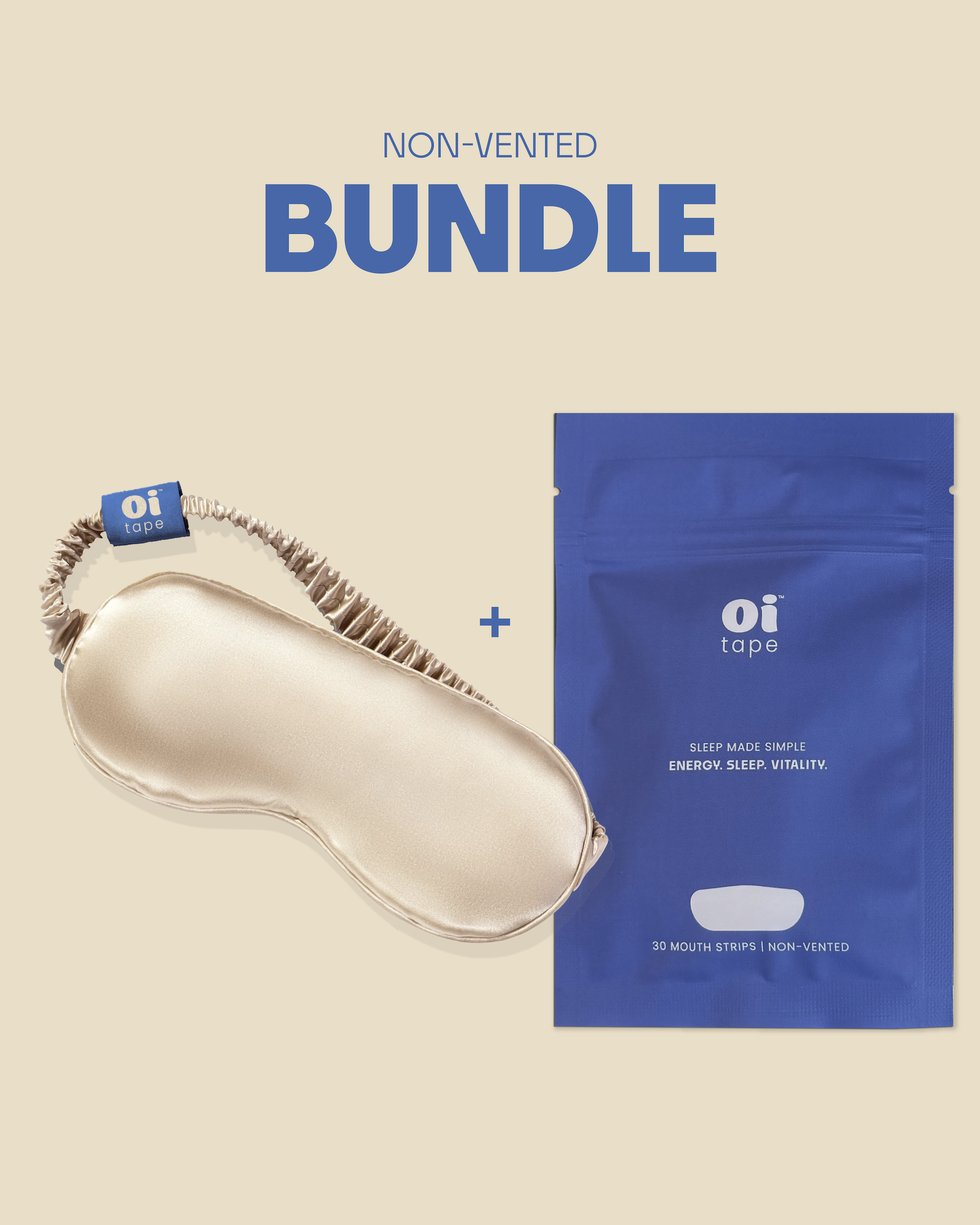

Dental Problems Related to Dry Mouth & How Mouth Taping Can Help
Saliva, produced by the salivary glands, plays a crucial role in maintaining a healthy mouth. It moistens and breaks down food, washes away food particles, aids swallowing, and contains essential minerals such as calcium and phosphate to strengthen teeth and prevent tooth decay.
Dry mouth, medically known as xerostomia, occurs when your salivary glands don’t produce enough saliva to keep your mouth adequately moist. Occasional dry mouth can happen due to stress or nervousness, but persistent dry mouth can lead to serious dental issues.
Dental Issues Caused by Dry Mouth
Persistent dry mouth significantly increases your risk for several dental problems:
-
Tooth Decay and Gum Disease: Reduced saliva leads to rapid plaque and bacterial buildup, increasing susceptibility to bad breath, tooth decay, gingivitis, and periodontitis.
-
Peri-implantitis: Individuals with dental prosthetics, like implants, face higher risks as bacteria accumulate around crowns, causing infection and inflammation.
-
Weakened Enamel and Denture Issues: Lack of sufficient saliva weakens tooth enamel, causes discomfort when wearing dentures, and interferes with taste and digestion.
-
Oral Thrush and Mouth Sores: Dry mouth can result in painful mouth sores and yeast infections, such as oral candidiasis (oral thrush).
-
Sleep Disruption: Chronic dry mouth frequently disrupts sleep quality, adversely affecting heart health and daytime alertness.
Common Causes of Dry Mouth
Multiple factors contribute to xerostomia, including:
-
Side effects of medications (antihistamines, antidepressants, blood pressure drugs, etc.)
-
Aging
-
Diseases such as diabetes or Sjögren’s syndrome
-
Radiation therapy to the head and neck
-
Damage to salivary glands
-
Mouth breathing instead of nasal breathing
How to Manage and Prevent Dry Mouth
Effective treatment of dry mouth depends on addressing its root cause. If medication-related, consult your doctor about possible adjustments. However, several easy-to-adopt behavioral strategies can help manage symptoms:
-
Regularly sipping water throughout the day
-
Limiting caffeine-containing beverages such as coffee or tea
-
Chewing sugar-free gum or candies to stimulate saliva production
-
Avoiding tobacco and alcohol
-
Sleeping with a humidifier to maintain moisture
-
Prioritizing nasal breathing over mouth breathing
Oral Hygiene Best Practices
To mitigate complications from dry mouth, maintaining impeccable oral hygiene is essential:
-
Brush teeth thoroughly at least twice daily using fluoride toothpaste
-
Floss daily, supplementing with interdental brushes or water flossers
-
Use antimicrobial mouthwash regularly
-
Schedule routine dental check-ups for professional cleaning and oral health assessments
How Mouth Taping Helps Combat Dry Mouth
Mouth breathing, particularly at night, exacerbates dry mouth by allowing saliva to evaporate rapidly. Adopting nasal breathing can greatly reduce dry mouth symptoms. An increasingly popular method to ensure nasal breathing overnight is mouth taping.
Mouth taping gently encourages the closure of your lips while sleeping, significantly reducing saliva evaporation. As a result, it:
-
Prevents dry mouth and throat irritation
-
Enhances oxygen intake by optimizing nasal breathing
-
Contributes to overall better oral health
However, mouth taping may not be suitable for everyone. It’s advisable to consult your healthcare provider or dentist before beginning mouth taping, especially if you have underlying respiratory or health conditions.
Ready to explore the benefits of mouth taping for dry mouth relief?
Visit Oi Tape to learn about our comfortable, medical-grade mouth tape specifically designed to promote nasal breathing and support optimal oral health.
Helpful Resources & Further Reading:
Implement these tips to maintain a healthy, comfortable, and hydrated mouth.





